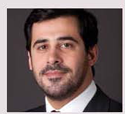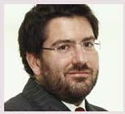Clients face challenges of data processing and georeferentiation – Cuatrecasas, Gonçalves Pereira
Data privacy and security breaches could be a ‘nightmare’ for clients, while the impact of the ‘Internet of Things’ on society is still unpredictable
Increasingly, companies want their telecommunications and IT services to be provided by the same supplier and this trend is creating a number of challenges, according to Cuatrecasas, Gonçalves Pereira’s Lisbon-based partner Leonor Chastre.
“Telecommunications and IT providers have been partnering up to respond to this demand and therefore increase revenues and customer loyalty,” she says. “However, social media and its impact on customers and users – either business or service-sided – can harm people and business alike.” Chastre continues: “Data privacy and security and data breaches can become a nightmare, both in terms of their impact and their complexity in possible subsequent litigation.”
Meanwhile, the need for all data processing to be regulated is creating significant opportunities for law firms, says Chastre. “The gathering, storage, processing and transmitting of data must be done via a process that is clear and auditable,” she adds. “This audit must be done according to several ‘rules’, either so-called best practice, or in line with international standards, such as NIST, ISO, ENISA, ISACA and COBIT, for example.”
In addition, Chastre points out that local legislation related to data processing is often inadequate. “Local legislation, for the most part, derives from other existing regulatory sources that can’t cope with the speed of technology, its acceptance and usage,” she says. “Such gaps can create the need for risk analysis that involves legal and regulatory assessments that can help to ensure proper data management.”
Law firms also face a number of major TMT-related challenges, according to Chastre, particularly their lack of knowledge and specialisation. “Georeferentiation and ‘Internet of Things’ will be widely spread, but society still lacks the forecasting ability to envision the conflicts they will bring and the need to rule its usage – for example, micro cameras flying either automated or human-controlled,” she says. “Law firms will have to address the lack of knowledge in technical areas either by internal or external specialisation.”












